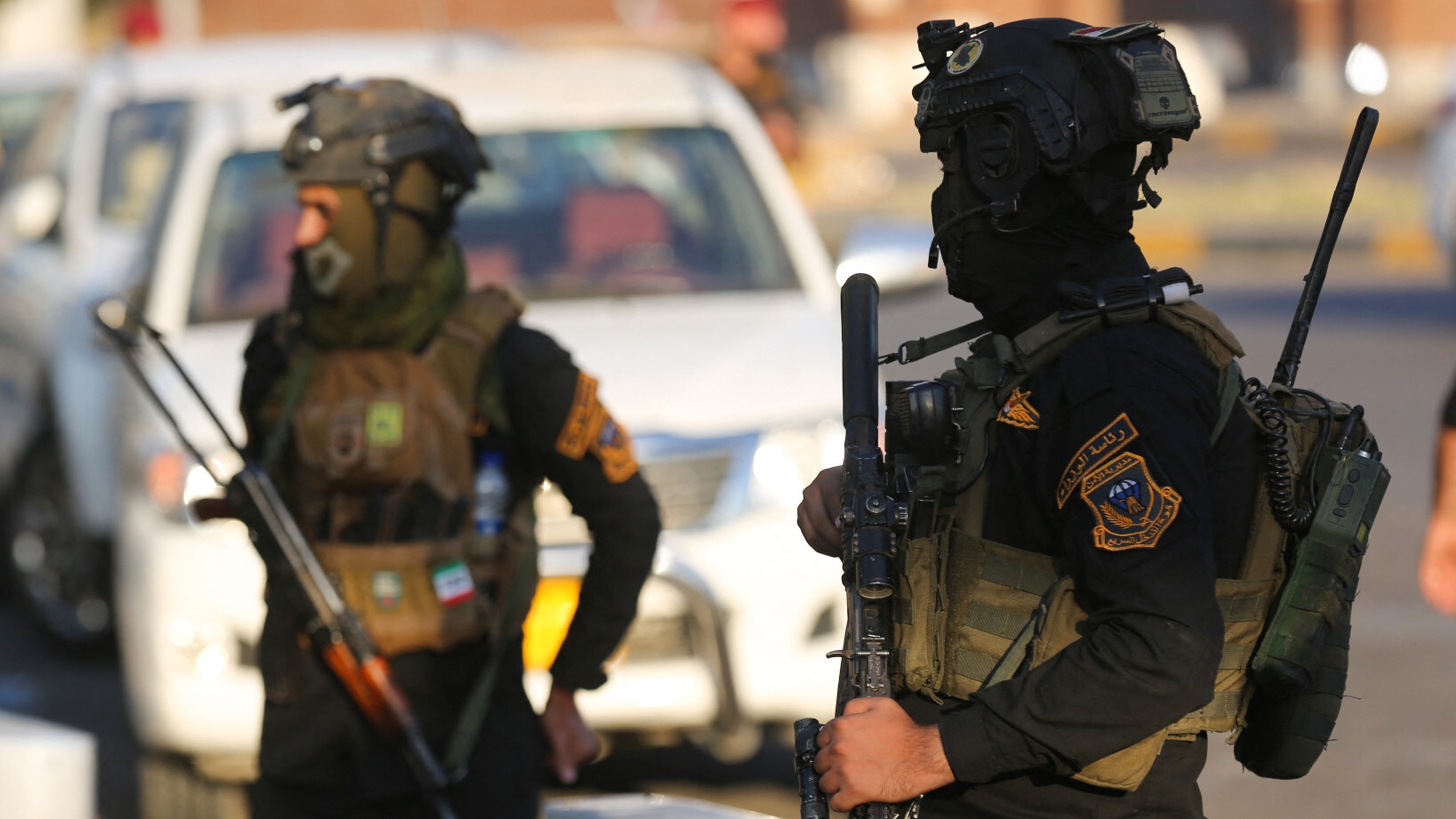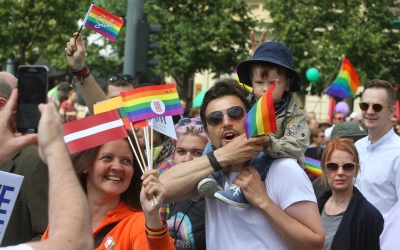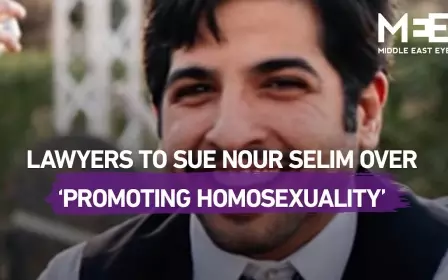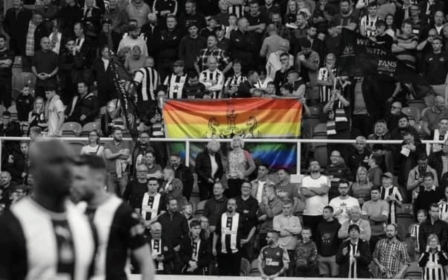Iraq armed groups 'kill, abduct, torture, and sexually abuse' LGBTQ+ people with impunity

LGBTQ+ people in Iraq live under the constant threat of abduction, rape, torture and murder at the hands of armed groups and the police, according to Human Rights Watch (HRW).
In a report published on Tuesday with Sweden-based NGO IraQueer, HRW also found that the police and armed groups - those within the Popular Mobilisation Forces, which answer to the prime minister - also engaged in extrajudicial killings, sexual violence, and online targeting of LGBTQ+ people.
'LGBT Iraqis live in constant fear of being hunted down and killed by armed groups with impunity, as well as arrest and violence by Iraqi police, making their lives unlivable'
- Rasha Younes, HRW
“LGBT Iraqis live in constant fear of being hunted down and killed by armed groups with impunity, as well as arrest and violence by Iraqi police, making their lives unlivable,” said Rasha Younes, LGBT rights researcher at Human Rights Watch. “The Iraqi government has done nothing to stop the violence or hold the abusers accountable.”
In eight cases, children as young as 15 were targeted, according to the rights groups.
One 31-year-old Iraqi transgender woman told HRW and IraQueer that she was returning home from work last February when six men in a Hummer stopped her next to a rubbish tip in Baghdad. “They pulled out a razor blade and a screwdriver and poked and cut me all over, especially my ass, crotch, and thighs,” she said.
“They sliced me up and poured around five litres of gasoline all over my body and face and set me alight.”
A 27-year-old gay man from the capital described how he watched four men from an armed group torture his boyfriend in May 2020.
“Then they shot him five times,” he said.
The 54 LGBTQ+ people interviewed said that while they were in detention they were routinely denied food, water, medical care and access to their families.
Although homosexuality is not against the law in Iraq, LGBTQ+ people are subject to massive discrimination and are not allowed to serve in the military.
There are also no anti-discrimination laws, meaning that abuse and violence against them are often overlooked.
Vaguely defined "morality" clauses in Iraq's Penal Code mean abusers are able to act with impunity and get away with it even when reports are filed, the rights groups found.
HRW named the "most serious abusers" as Asa’ib Ahl al-Haqq, Atabat Mobilisation, Badr Organisation, Kataeb Hezbollah, Raba Allah Group, and Saraya al-Salam.
Many LGBTQ+ Iraqis interviewed for the report said they had faced violence at the hands of male relatives in their own households.
“LGBT Iraqis’ lives will continue to be lost if the Iraqi government does not end the violence and impunity immediately,” Younes said.
“Iraqi authorities should start by publicly condemning violence against LGBT people and safeguarding their right to access protection in their own country.”
Forced to flee
Political instability, lack of job opportunities, absence of freedom of expression, and no accountability for extra-state killings are just some of the problems that have driven so many Iraqis - including a large number of Kurdish Iraqis - from their homeland in recent months after Iraq changed its visa rules.
But for LGBTQ+ people, the threat of violence is even more acute.
In February, 23-year-old transgender woman Doski Azad was murdered by her brother in the northern city of Dohuk in what has been branded a so-called "honour killing".
The incident, which was widely condemned both inside and outside Iraq, has left many LGBTQ+ people frightened and has driven those who are able to leave the country.
In April last year, Sulaymaniyah, sometimes seen as the most liberal city in Iraq, witnessed a police operation that saw the arrest of 15 LGBTQ+ men, allegedly for prostitution.
Although the Directorate of Security in Sulaymaniyah said the arrests were not focused on any one group, operation supervisor Pshtiwan Bahadin told local media that the arrests were aimed at "homosexuals" and said they had taken place with the "cooperation of all the security forces".
Markiza Yousif, originally from Baghdad, recently left Iraq for Lithuania via Belarus.
"Despite it being a harsh trip from Belarus to Lithuania, it was not worse than the situations I experienced in Iraq,” the 23-year-old told MEE in February.
“When I decided to flee, I knew well that I would never, ever go back home."
Middle East Eye propose une couverture et une analyse indépendantes et incomparables du Moyen-Orient, de l’Afrique du Nord et d’autres régions du monde. Pour en savoir plus sur la reprise de ce contenu et les frais qui s’appliquent, veuillez remplir ce formulaire [en anglais]. Pour en savoir plus sur MEE, cliquez ici [en anglais].






